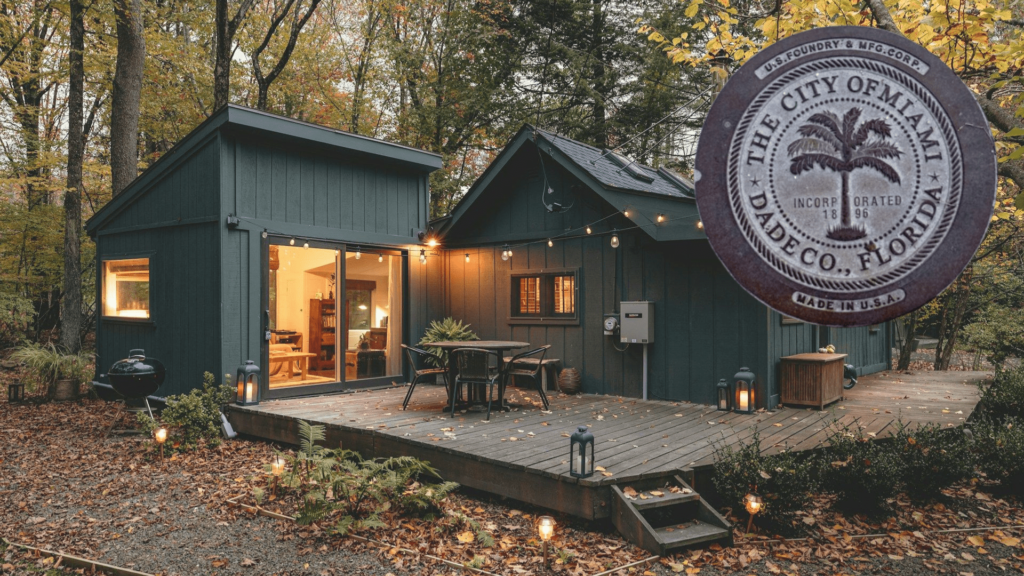
Planning to rent out your property in Florida for short-term stays? You’ll need to know about short-term rental licenses! Florida has specific requirements for vacation rental properties, and understanding the types of licenses available can help you stay compliant and attract guests with confidence. Whether you’re a new host or an experienced one, here’s a guide to the types of short-term rental licenses in Florida and why they matter.
Table of Contents
ToggleUnderstanding Short-Term Rental Licenses
In Florida, short-term rental licenses are regulated by the Department of Business and Professional Regulation (DBPR) and local municipalities. These licenses ensure that rental properties meet safety standards and operate legally within their jurisdictions.
Short-term rental licenses in Florida are essential permits for homeowners who want to rent out their property for short durations typically anything under six months. These licenses ensure that rental properties meet safety, health, and zoning standards, protecting both guests and the community.
Types of Short-Term Rental Licenses
1. Vacation Rental License
✓Definition: Required for properties rented more than three times per year for periods less than 30 days.
- Annual fee: $150 per unit
- Renewal required: Yearly
- Maximum occupancy: Determined by local regulations
- Inspection requirements: Initial and annual safety inspections
2. Transient Public Lodging License
✓Features:
- Suitable for hotels, motels, and vacation rental condominiums
- Fee structure: Based on number of units ($200-$1,000)
- Valid for: 1 year from issue date
- Includes: Regular health and safety inspections
3. Bed and Breakfast License
✓Requirements:
- Maximum of 15 rooms
- Owner must live on-site
- Annual fee: $200
- Additional food service permits may be required
4. Local Regulations and Requirements
Different Florida municipalities have varying requirements:
Miami Beach:
Florida cities have unique rules for short-term rentals, and Miami Beach has some of the strictest. Short-term rentals are only allowed in specific designated zones, so it’s important to check if your property falls within those areas. Additionally, certain parts of Miami Beach require rentals to be for a minimum stay of 6 months and 1 day, limiting shorter stays in these neighborhoods. Violating these regulations can be costly, with fines reaching up to $20,000, so knowing the local rules can save you from unexpected penalties.
Orlando:
In Orlando, if you’re planning to rent out your property, you’ll need to register with the city first. The good news is that the process is straightforward! There’s an annual fee of $275, which helps keep things running smoothly. Also, keep in mind that occupancy limits will vary depending on the size of your property, so it’s important to check those guidelines to ensure you’re in compliance.
Key West:
In Key West, if you’re considering renting out your property for short stays, you’ll need to get a transient rental license. However, it’s important to note that there are a limited number of these licenses available, making them quite sought after. Because of the high demand and the impact of tourism on the area, the fees for obtaining a transient rental license tend to be higher than in other locations. So, if you’re thinking about joining the vacation rental market in Key West, be prepared for these considerations!
Cost Analysis and ROI
Investment Comparison (Based on 2023 Data):
Traditional Long-Term Rental: Let’s take a look at the numbers for traditional long-term rentals based on data from 2023. If you’re considering this type of investment, you can expect an annual revenue of around $24,000. After factoring in operating costs, which are approximately $8,000, that leaves you with a net income of $16,000. This means that with traditional long-term rentals, you can enjoy a solid return on your investment while providing stable housing for tenants.
Short-Term Rental: When it comes to short-term rentals, the numbers can be quite promising! Imagine bringing in an annual revenue of $45,000 from your rental property. After covering your operating costs, which amount to about $15,000, you’re left with a net income of $30,000. This means that after taking care of all the necessary expenses, you could enjoy a healthy profit! It’s a great opportunity for those looking to earn extra income or invest in their future.
Application Process and Timeline
1. Gather Required Documents:
Property deed or lease agreement
- Business tax receipt
- Certificate of insurance
- Floor plan
- Fire safety inspection report
2. Submit Application:
- Processing time: 2-4 weeks
- Initial inspection scheduling: 1-2 weeks
- Total timeline: 30-45 days
Tips for Success
✓ Best Practices to Keep in Mind:
-
- Keep Clear Records: Stay organized by maintaining detailed records of all your rentals.
-
- Monitor Noise Levels: Consider installing noise monitoring devices to keep the peace and ensure everyone enjoys their stay.
-
- Stay Available: Provide your guests with 24/7 contact information, so they can reach you anytime they need assistance.
-
- Set Clear House Rules: Create a friendly guide with house rules and emergency procedures to make sure everyone knows what to do in any situation.
-
- Regularly Maintain Your Property: Schedule regular maintenance to keep your property in tip-top shape for all your guests.
✓ Common Mistakes to Avoid:
When it comes to short-term rentals, there are a few common pitfalls you’ll want to avoid to ensure a smooth experience. First, be sure to pay attention to local zoning restrictions; ignoring these can lead to fines or even the loss of your rental privileges.
Next, make sure you have sufficient insurance coverage. This will protect you from potential liabilities and keep you safe in case of any mishaps. Compliance with safety regulations is also crucial failing to meet these requirements can put both you and your guests at risk.
Take the time to establish a thorough guest screening process. This not only helps ensure a positive experience for everyone involved but also adds an extra layer of security to your property. By steering clear of these pitfalls, you’ll set yourself up for success in your rental journey!
Conclusion:
Securing the right short-term rental license in Florida requires careful consideration of various factors, from local regulations to financial implications. By understanding the different types of licenses available and their requirements, you can make an informed decision that aligns with your investment goals.
🔗 Helpful Resources:
- Florida DBPR Website
- Vacation Rental Application Portal
- Local municipality websites for specific regulations
💡 Next Steps:
- Research your specific location’s requirements
- Consult with a local real estate attorney
- Calculate potential ROI using our rental calculator
- Begin the application process
Note: Regulations and fees are subject to change. Always verify current requirements with your local authorities.

